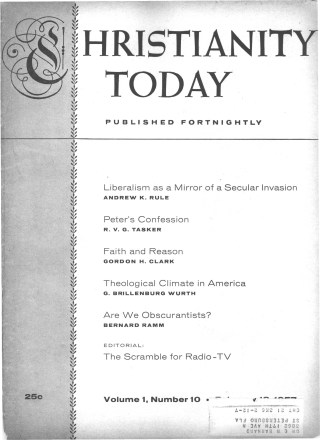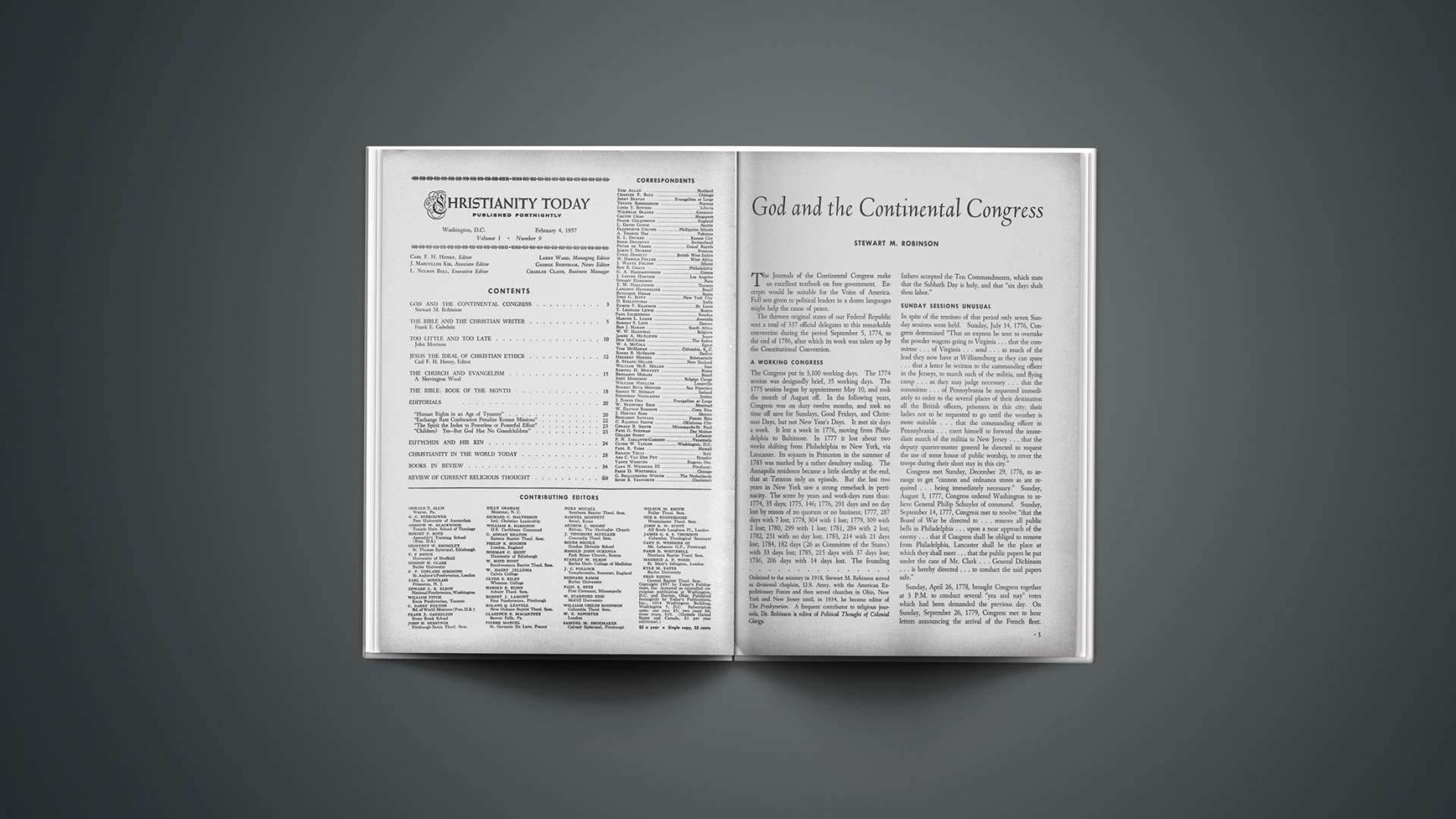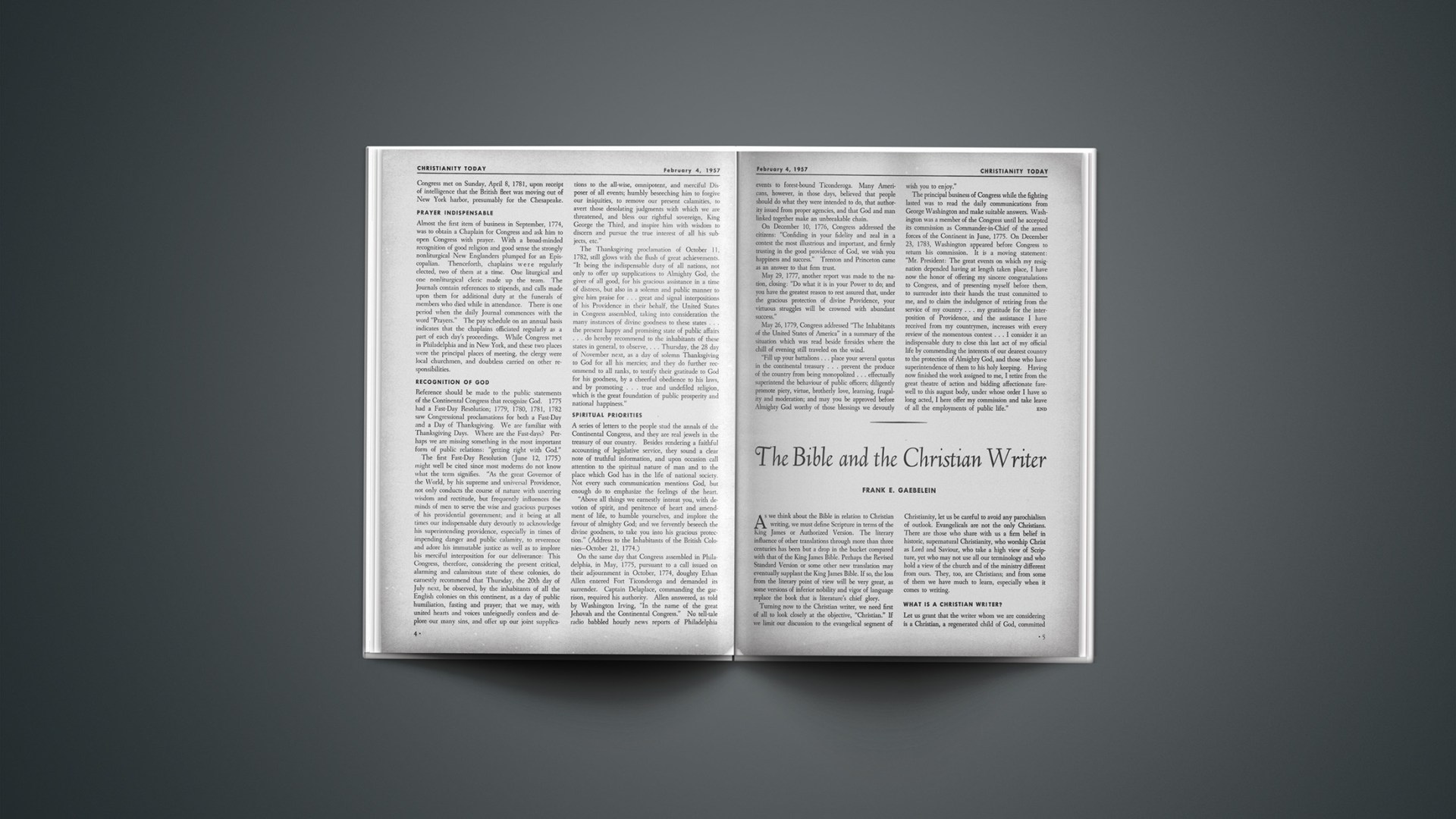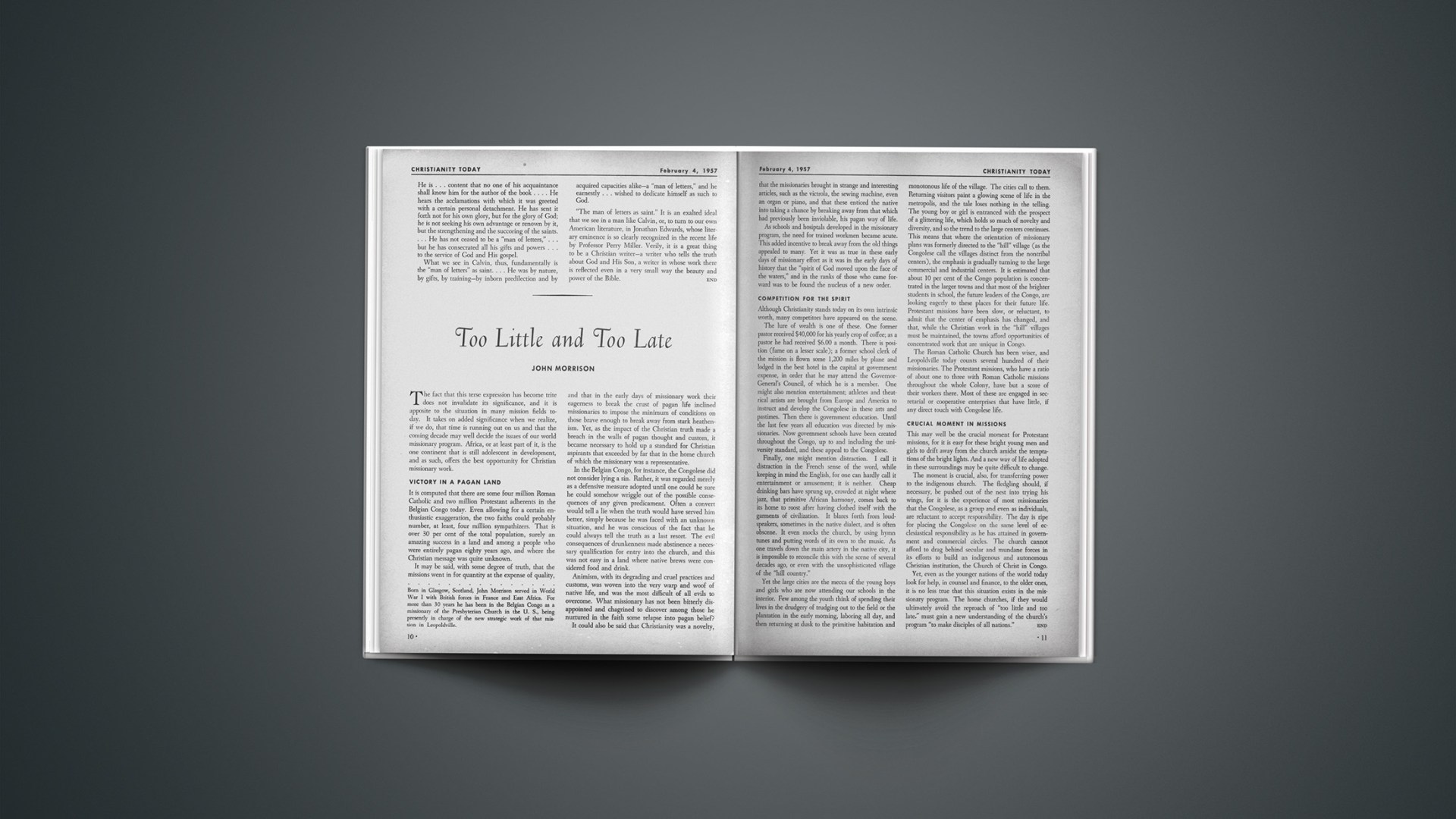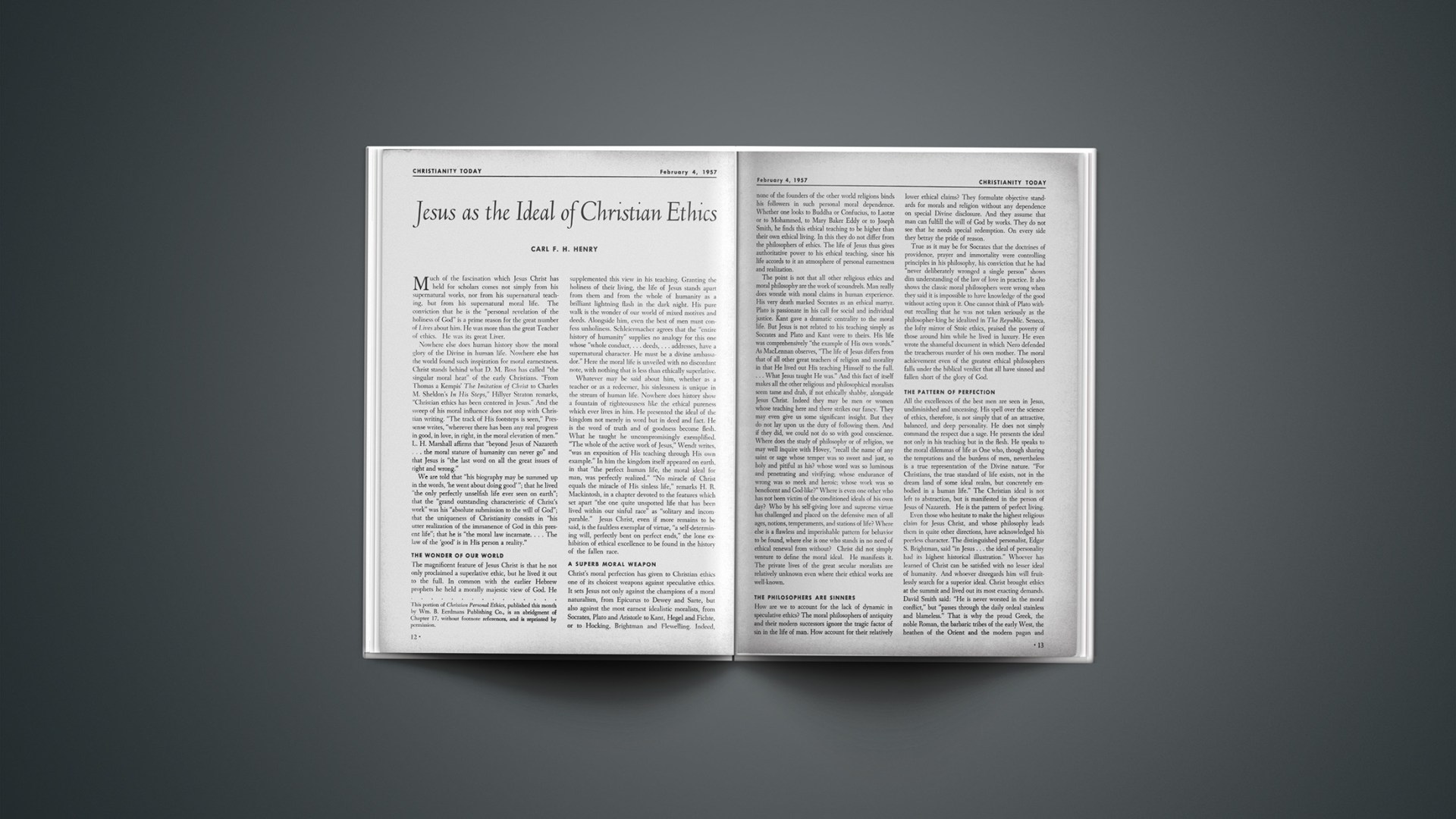Kandy For Council
Almost as certain as death, war, taxes and clergy controversy is the fact that the 1960 meeting of the World Council of Churches will be held in Ceylon, a country now in the throes of a Buddhist revival.
The historic city of Kandy is expected to take its place in the distinguished line which began at Amsterdam in 1948. (The Council meets every six years.)
Kandy is a modern city set in surroundings of tea and coconut plantations. Fence posts often are the trellis for long, creeping black pepper plants. A muddy little river meanders through the city. Tourists come to the banks at tea time to watch elephants wash up after a day’s work.
Three miles from Kandy’s heart, in an adjoining suburb, the river borders one of the world’s most beautiful botanical gardens. Across the well-paved road from the garden is the University of Ceylon, an extravagantly-built educational center less than 10 years old.
The university campus will be the site of the World Council meeting.
Prime Minister Bandaranaike, leader of the Buddhist revival, has given strong assurances of welcome to Dr. Vissert’Hooft, secretary of the WCC. Ceylon is a friendly land for tourists and offers many attractions.
Kandy is sacred to the Buddhists because its Temple of the Tooth, situated in the heart of the city, once claimed to house a superhuman-sized tooth of Buddha himself. Every August, for the last 20 centuries, a procession of elephants, numbering as many as 100 in modern times, honors the Temple of the Tooth.
Broadcast Cancelled
Billy Graham’s Hour of Decision broadcast has been cancelled by the Ceylon government and all Christian broadcasts are expected to be eliminated by the end of 1957.
Radio Ceylon, a government broadcasting agency, said a recent sermon by Mr. Graham contained anti-communist remarks, including criticism of Russia and China.
C. R. Dodd, director of the commercial service, said he asked officials of the program for an explanation on “why a religious talk should include political comment.” In cancelling the contract, he said he had not received any explanation.
A number of other missionary programs, including Back to the Bible and Light of Life, have been purchasing time on Radio Ceylon for several years. Broadcasts are made in several languages and beamed to nearby India, where they are forbidden. One program reported hearing from more than 20 different countries scattered from Australia to the Gold Coast.
Objections to Christian missions using the facilities of Radio Ceylon have been raised since the government of Prime Minister Bandaranaike took over last April. The government needs money badly but has decided it can do without the thousands of rupees spent annually by Christian missions.
Report From Japan
“You can’t unscramble eggs,” was the favorite remark of my church history professor. The hymn writer states the same idea in beautiful words:
God moves in a mysterious way, His wonders to perform.
We may not be able to fathom all the mysterious movements in the Church, but we know that the Church, in all its branches and forms, is moving forward in Japan.
There is great hope, signs of vigorous growth and a courageous planning for big things.
There is hope because of the evident blessing of God.… In the mysterious rise of denominations (114 missions work with 65 denominations, more than double pre-war figures), the hand of the Lord is ever guiding, ever making “the wrath of man to praise him.” Through these various denominations, more people in more scattered areas and more diversified strata of society are being reached.
There is vigorous growth. The Japan Bible Society reports the largest sales in its history, with the publication of the Kogotai version New Testament in 1954 and the entire Bible in 1955. Sales for 1956 total 1,854,574 copies of Testaments and portions. The 1955 Bible won the Osaka Daily News prize for typography and style in its class of publications. More people are reading the Bible than ever before; consequently, more persons are seeking out the churches so as to understand the Bible. Another sign of growth is the rapid expansion of the lay visitation evangelism movement. In 1948, Bishop Arthur Moore and the Rev. Hugh S. Bradley came to Japan in an effort to introduce visitation evangelism, but it failed to “catch.” Then suddenly, in 1952, the Rev. Yoshida, pastor of Reinanzaka Church in Tokyo, “discovered” the method. He has been successfully advocating it throughout Japan.
The spiritual birthrate varies with each denomination, but on the whole compares favorably with older churches in the Western World. According to the 1956 yearbook published by the Christian News, the figures for 1955 show a total Protestant membership of 271,394, with 81,466 baptisms.
When we think of the small number of Christian in Japan, about one-fourth of one per cent of the population, it is amazing to see the courage with which they plan for great things. Two big events loom before them: the 14th World Convention of Christian Education, scheduled for Tokyo in August, 1958; and the Centennial Year of Protestant Missions, in 1959. Various plans are now being drawn up for a year of nationwide evangelistic campaigns.
J.A.M.
Korean Appraisal
Nowhere among the younger churches, save perhaps in the islands of the South Seas, has evangelism cut more deeply into the moral and spiritual fabric of a nation than Korea.
In two generations this hermit, pagan kingdom has become the most Protestant country of Asia. Out of the revivals of the first decade of this century, undergirded by earnest and intense Bible study, came a massive growth of the Protestant church, and out of this church have come the leaders of the new Korea, from President to primary school teachers, in such proportions as no other country of Asia has known.
Has the turning point, then, already been reached? Probably not. In the first place, revival has produced its paganreaction. Already there is powerful resentment among the non-Christian majority against the ascendancy of the Christian minority. In the second place, revival is no end in itself, but leads on to consistent, responsible Christian living, or it is discredited. It has taken only a few scandals in high places to begin to weaken the reputation for integrity which the Korean Church won for itself at so great a price in the days of persecution.
The basic question is: Can Korea’s Christians stand up to the corrosive responsibilities of power as gloriously as they have faced the tortures of the oppressors? Until we know the answer to that question, the immediate future of what may be called the Korean Revival remains in doubt.
S.H.M.
Decree On Bowing
The executive branch of the Chinese Nationalist government has published a decree authorizing penalties against state employees who refuse to bow to the flag or the portrait of Dr. Sun Yat-Sen, the founder of the Chinese Republic.
The decree upholds findings last year by the committees of law and education of the legislature that such salutes are “not acts of religious worship,” but merely gestures of respect to the flag and to the memory of Dr. Sun.
Issuance of the government decree climaxed a controversy which arose in 1953 when two American Presbyterian missionaries—Egbert W. Andrew and Richard B. Coffin—objected to the practice as “sacriligious.”


